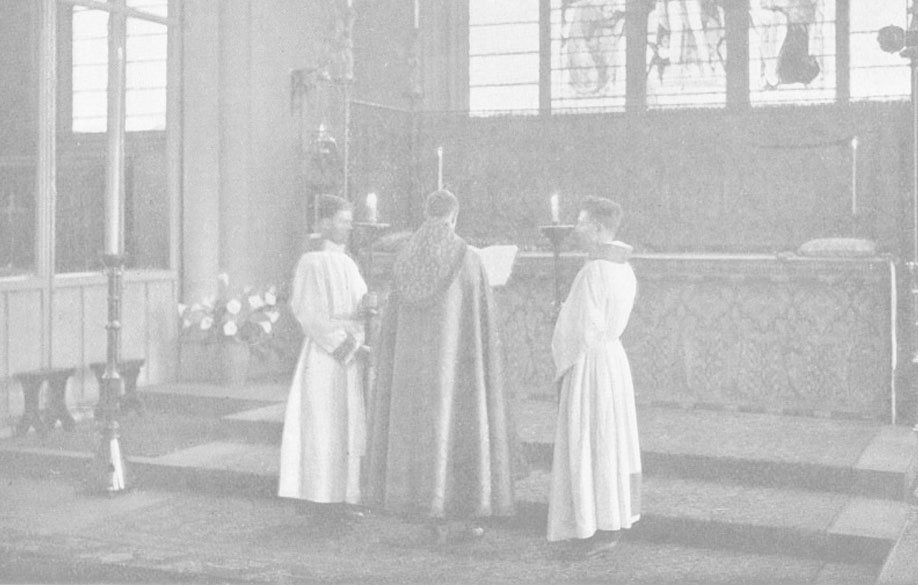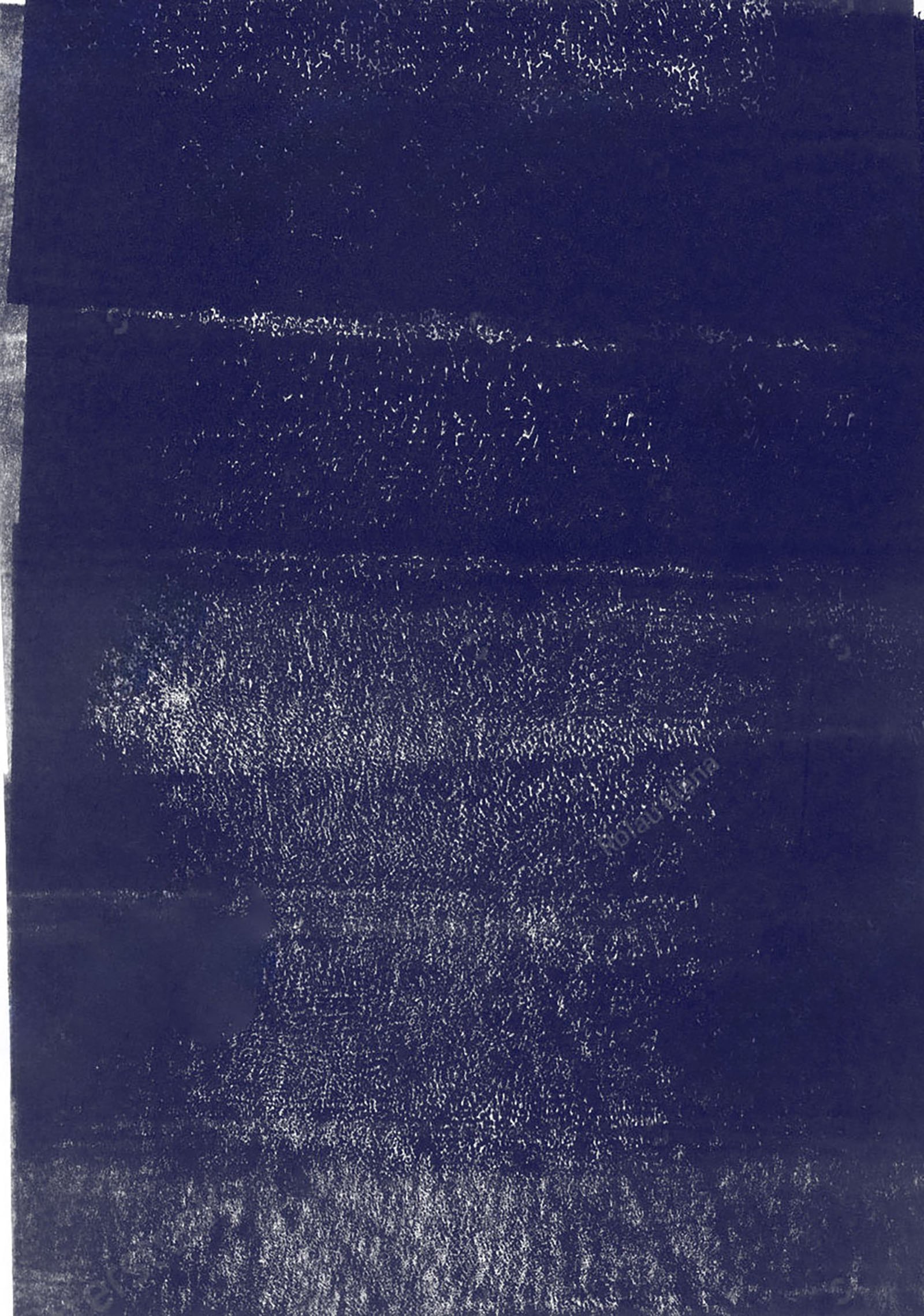
An Evangelising Mission...
Domus Anglicana advances the mission expressed in Pope Benedict’s Apostolic Constitution Angicanorum coetibus, a document which brings Anglicans into Full Communion with the Catholic Church. We serve members of the Ordinariate in Canada but are not an arm or branch of any Ordinariate structure.
“The late Pope Benedict XVI made a remarkable invitation to Anglicans in 2009—to come home. The Supreme Pontiff did so through the Apostolic Constitution Anglicanorum cœtibus which made it possible for Anglicans to become Catholics as whole groups. What’s more, the invitation was to return the venerable English spiritual heritage and Anglican patrimony to Christ’s Church as a treasure to be shared.
Since that historic invitation, three Personal Ordinariates have been erected: Our Lady of Walsingham in the United Kingdom; the Chair of Saint Peter in Canada and the United States; and Our Lady of the Southern Cross in Australia and Oceana. The Ordinariates are a key ecumenical venture exemplifying the Second Vatican Council’s vision for Christian unity, in which diverse expressions of the one true faith are joined together in union with the Pope.
In the Council’s Decree on Ecumenism (Unitatis redintegatio), the Catholic Church declared that Christian groups coming into communion would bring their own distinctive traditions to the Catholic Church; they would not be suppressed or absorbed. The Ordinariates are tangible expression of this.
Ours is a beautiful and ancient tradition now rejoined with the Church after nearly five hundred years of separation. Pope Benedict made a remarkable invitation to come home. Whether you’re Anglican or protestant wishing to join the Church, or a Catholic seeking a traditional Mass, come and discover the Venerable English Mass.” — the former Deanery of St. John the Baptist
Since the creation of the Personal Ordinariates, the late Pope Francis expanded membership well beyond the original Anglican groups who sought full communion with the Catholic Church. As a result of this broadened evangelising mission, Ordinariate communities now include a diverse range of people: converts from various Christian traditions, Catholics returning to the faith, and cradle Catholics who have come to appreciate the noble tradition we preserve and the distinctive character of our community life. Ordinariates are established by the Dicastery for the Doctrine of the Faith and, in accordance with the Apostolic Constitution, the Catechism of the Catholic Church serves as the authoritative expression of the faith professed by Ordinariate members.
“We are the pathway into the Catholic Faith for Anglicans, a missionary outfit for evangelisation and a network for pastoral accompaniment of the faithful.” — the Ordinariate of Our Lady of Walsingham
We accomplish our mission in the following ways:
• Promote membership in the Ordinariate across Canada.
• Encourage the establishment of paraordinariate Trusts nationwide.
• Support the coordination of these Trusts to help ensure a unified approach, shared resources, and the development of a comprehensive strategic plan that makes sense in our particular Canadian context.
• Plan and implement national and regional activities for members of the Ordinariate.
• Advocate for the needs of Canadian Ordinariate members.
• Encourage and support Canadian vocations to the sacred priesthood.
As a new initiative, Domus Anglicana is currently inviting existing “pre-Ordinariate” groups in Canada to association with us in friendship in this nation-wide endeavour. We have established a Vestry (composed of delegates from each group) and plan to expand as new communities decide to take part. We earnestly ask for your prayers and support for this missionary endeavour.
Paraordinariate Trusts…
A paraordinariate Trust is an informal but structured community of laity who gather to pray, learn, and build Catholic community according to the patrimony now preserved and nourished by the Ordinariates. These grassroots associations normally do not have immediate access to an Ordinariate priest or parish, but exist to foster the Ordinariate’s liturgical, spiritual, and communal life in areas where a full parish presence is not (yet or ever) feasible. Like Domus Anglicana, the local Trusts are not a part of any official Ordinariate structure but rather serve Ordinariate members in Canada as resources permit. Key characteristics are as follows:
Lay-Led Structure
The various Trusts are initiatives established and maintained by the lay members of the Ordinariate in a given area with the friendship and encouragement of other para or pre-ordinariate communities in Canada, as well as our association Domus Anglicana. Individual paraordinariate Trusts are not structures of the Ordinariate, or Domus Anglicana, and therefore are responsible for their own legal incorporation (should they wish), financial oversight, and adherence to Safe Environment policies. The particular Trusts do not have any legal or contractual relationship with each other, the Ordinariates or Domus Anglicana. The relationship between each community is one of mutual help and friendship.
Liturgical Life
While lacking a resident Ordinariate Priest, members gather for Ordinariate liturgies such as Evensong (Evening Prayer), other offices, and spiritual devotions, making use of Divine Worship: Daily Office (Commonwealth Edition) and other Ordinariate liturgical resources.
Community Formation
Beyond worship, and vital to the success of any endeavour, Trusts build authentic Catholic community through social gatherings, catechesis, and cultural events rooted in the Anglican and English Catholic tradition.
Pathway to Parish Status
It is our view that a paraordinariate Trust is a great good—even should the community never becomes an Ordinariate Parish. We do pray, however, that Trusts that grow in membership, stability, and financial commitment may ultimately be recognised as parishes-in-formation by our Bishop when a Priest can be assigned.
This lay lead paraordinariate model allows Ordinariate membership and activity in Canada to expand organically, while keeping alive the distinctive spirituality, liturgy, and evangelistic potential of the Ordinariate in Canada. If you are interested in establishing a Paraordinariate Trust in your area, contact our Clerk of the Vestry and we will explore what can be accomplished together.

THE PRAYER BOOK
One falls in love with the Prayer Book offices not because they were Anglican, but because they are full of holy fire. They are beautiful and alive. Those who read little Bible become immersed in scripture. Those who make few prayers begin to find Psalmody on their lips. Those with no training in theology commit the most precise and subtle ideas to memory in the collects. The elements of basic catechesis—the Creeds, the Lord’s Prayer, the Calendar— are ready and waiting. It is no surprise that many an Anglican frontiersman was able to keep their religion intact with the Prayer Book and family Bible alone.
The Divine Office thwarts the tendency toward cargo-cult religion. It’s all too easy to prize rituals, customs, and practices because they fit a perceived form — ‘authenticity’, real or imagined. But the artefacts of Christian practice came into being because they were actually of value for the Gospel. They converted men, turned them into saints, and advanced the Kingdom.
Stripped of the resources for music, regular Mass in our ritual, and other luxuries, we return to the pattern of the Prayer Book, which is nothing other than a manifestation of the Hours shared by all the Church. It sets the one who prays upon the fundamental pattern of Christian life. It is here that the Benedictine abbey collapses into the lay household. Here, Christian perfection is preached to spouses, clerics, and religious alike. Here, the ordinary believer is formed in the faith of the prophets and the saints, in excellences both natural and supernatural.
Prayer is efficacious, and so what happens to a believer that sanctifies the day to the Lord? What fruits come to the one who turns over a time in morning and evening — not to speak of minor hours, if possible — to meditation on the Word? It is these small actions in which grace acts upon the will and furnishes the intellect with the matter of the deposit of faith.
Unlike the other offices of the Church, none more than this can immerse the faithful in the Scriptures, “that we may in such wise hear them, read, mark, learn, and inwardly digest them.” When faith becomes too much intellectual, the judges and the prophets spring up from Israel to demand blood and fire. When worldly cares make it slothful, the Apostles preach the Kingdom to stir up our zeal. When mere habit or prestige among men usurp our faith, our Lord thunders his admonishment and points to the penitent tax collector. For the scrupulous man, is there any better help than De Profundis? For the one who has forgotten justice and judgment, than the imprecations of Psalm 35? And what better way for the believers to tear an hour of meditation from the busy world than to chant them together?
The Divine Office creates a Christian armed with the twin blades of true doctrine and trained prayer. It is a great gift of the Spirit to the Church Militant, fulfilling the admonishments of the great and holy council of the last century. Let all other customs and traditions flow from this vital power. When we train up a whole community in this beating heart of the patrimony, we will see the future of that patrimony in the Church through eyes made clear by the Gospel and not blinded by personal sentiment and nostalgia.”
Ash Milton: St. Thomas More Trust, Toronto



